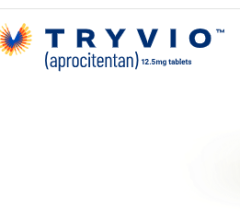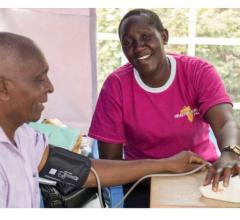
Findings from a clinical trial on treating hypertension, published in the Journal of the American Medical Association (JAMA), highlight the potential of personalized medicine in cardiovascular care, and in the future, could improve treatment adherence, patient outcomes, and the cost-effectiveness of blood pressure-lowering medication.
April 12, 2023 — Results from the Precision Hypertension Care Study (PHYSIC) showed that personalized blood pressure treatment had the potential to lower systolic blood pressure by an additional 4.4 mm Hg, as published April 11 in the Journal of the American Medical Association (JAMA). This effect was twice that achieved by doubling the dose of a non-tailored drug, and had more than half the effect of adding a second drug, on average.
These findings, from “Heterogeneity in Blood Pressure Response to 4 Antihypertensive Drugs: A Randomized Clinical Trial,” highlight the potential of personalized medicine in cardiovascular care, and in the future, could improve treatment adherence, patient outcomes, and the cost-effectiveness of blood pressure-lowering medication.
Recognizing high blood pressure as a huge global health challenge, researchers noted that over the last 30 years, the number of people with hypertension has doubled, resulting in approximately a third of adults aged 30-79, or 1.28 billion people worldwide, having the condition. They further noted that untreated hypertension can lead to kidney disease, heart disease, and stroke, accounting for 11.3 million deaths in 2021 alone.
Only a small minority of patients get their blood pressure under control with drug therapy, leaving researchers to wonder if part of the problem may be that the efficacy of treatments differs between individuals. A key question, then, was whether tailoring drug choice to the individuals can make a difference, asking: is there a potential for personalized drug therapy in hypertension, and, if so, what is the magnitude of the benefit of personalization?
The George Institute for Global Health collaborated with Uppsala University on the study to address this question. In the Precision Hypertension Care Study (PHYSIC), researchers sequentially tested four different blood pressure-lowering medicines (lisinopril, candesartan, hydrochlorothiazide, and amlodipine) in 280 people with hypertension in Sweden, as they sought to determine whether there is an optimal blood pressure drug for every person.
The study showed that the benefit for individuals varied according to the medication given. As such, authors noted that, for many people, matching the right treatment to the right individual was better than doubling the dose of a non-tailored drug and almost as good as adding a second drug.
"With these findings, we have evidence that existing blood pressure treatments can be optimized for maximum patient benefit,” said Principal investigator Johan Sundström, Professor of Epidemiology at Uppsala University and Conjoint Professor at The George Institute for Global Health. He added, “Personalized treatment may reduce the need for higher doses and multiple medications, with the potential to improve treatment adherence, patient outcomes, and cost efficacy."
The PHYSIC trial sets the groundwork for further research into personalized medicine to treat hypertension.
"Personally tailored treatment is now the standard of care for many patients with cancer, but personalized medicine has been much slower to take off in the cardiovascular field,” according to Professor Bruce Neal, Executive Director for The George Institute, Australia and a co-author on the research. He further commented: “This research shows that there is real potential for tailoring something as simple as blood pressure lowering treatment. However, the next challenge we need to overcome is how to do this at scale. Although we showed the potential in this research study, we don’t yet have the tools to do it in practice.’’
More information: JAMA. 2023;329(14):1160-1169. doi:10.1001/jama.2023.3322
Reference:
Sundström, Johan, et al. Heterogeneity in Blood Pressure Response to 4 Antihypertensive Drugs. JAMA. April 11, 2023. https://doi.org/10.1001/jama.2023.3322
Zhou, Bin, et al. Worldwide trends in hypertension prevalence and progress in treatment and control from 1990 to 2019: a pooled analysis of 1201 population-representative studies with 104 million participants. The Lancet. September 11, 2021. https://doi.org/10.1016/S0140-6736(21)01330-1
Vaduganathan, Muthiah, et al. The Global Burden of Cardiovascular Diseases and Risk: A Compass for Future Health. Journal of the American College of Cardiology. December 20, 2022. https://doi.org/10.1016/j.jacc.2022.11.005


 September 09, 2025
September 09, 2025 









